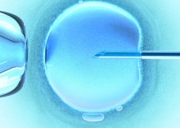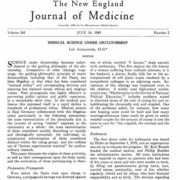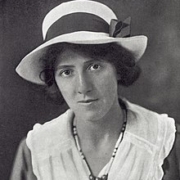This baby is still you, just the ‘best of you’ – the quest for better babies
 In one of the early scenes of the sci-fi film Gattaca, a couple decide they want to ensure their second child has the ‘best’ start in life. So they visit an IVF clinic to select the genetic profile of their baby. When the couple express some disquiet about the selection process the doctor encourages them, explaining that: “This baby is still you, just the best of you”.
In one of the early scenes of the sci-fi film Gattaca, a couple decide they want to ensure their second child has the ‘best’ start in life. So they visit an IVF clinic to select the genetic profile of their baby. When the couple express some disquiet about the selection process the doctor encourages them, explaining that: “This baby is still you, just the best of you”.
Lord Winston, pioneer in IVF treatment, is similarly expressing some disquiet about the embryo selection process taking place in IVF clinics today.
In a recent speech he warns that a ‘toxic’ climate has been created by the desperation of childless couples and the pace of scientific developments in the booming IVF industry.
In fact, he goes as far as to use the ‘E’ word, ‘Eugenics’.
Winston says we are facing a resurgence in eugenics today (the improvement of humans by deliberately choosing their inherited traits). Like in Gattaca, we have both a growing market for fertility treatments and increasing pressure to enhance human qualities. He warns we could: ‘end up with a society where some people may actually have something that might threaten our humanity’.
It is not as obvious as the eugenics of the past. This ‘new’ eugenics is clothed with kind, gentle language using words such as ‘choice’ and ‘freedom’. It nevertheless enables the same inherently offensive and discriminatory distinctions that used to be made between the so-called ‘fit’ and ‘unfit’. Today many people believe they have not just a ‘right’ to a child but also a right to choose a particular kind of child.
The availability of technologies such as prenatal testing and embryo screening mean that parents are confronted with decisions about selecting an embryo, or continuing a pregnancy to term, when in the past they would have just had to accept their child.
It is easy to see how such choices present parents with incredibly difficult decisions.
They are under pressure to decide whether to have a ‘normal’ child, or whether to raise a disabled child with the burden of knowledge that they could (‘should?) have decided differently. Inevitably, social and cultural pressure means many parents choose not to have a disabled child.
But choosing the kind of child to have, means preferring one child over another. It means deciding that a certain kind of child should not be brought into existence, that not every life is worthy of being lived. Or to put it more bluntly, that there are some lives that do not have any worth.
Add into the mix society’s increasing obsession with celebrity status, physical mentalhealthdrugs soma perfection and high intelligence and it is easy to see how it all fuels the view that the lives of people with disabilities or genetic disorders are somehow less worth living.
Winston’s point is that this will get worse.
There is a greater willingness on the part of both scientists and prospective parents to take risks with future lives and a readiness to pick and choose other characteristics. Genetic technologies will be deliberately exploited in the future to produce more intelligent, stronger and attractive offspring because now we have technology where we can modify the genomics of individuals by gene transfer and genetic meddling.
We need look no further for evidence for this than current plans to genetically engineer three parent embryos. A year ago several high profile academics in the UK and USwarned in a letter with the headline: ‘Eugenics fear over gene modification’ that we are likely to see ‘… a future of genetically modified “designer” babies.’
Genetically changing a human person – however little or much – turns that human into a designed product, modifiable at will, without consent.
However not everyone is worried about this. Indeed, some welcome it.
Biotechnology is the great new hope for eugenicists, who have long advocated ‘improving’ the human race by controlling the genes transmitted to future generations.
Robert Edwards, test-tube baby pioneer, has said: ‘Soon it will be a sin of parents to have a child that carries the heavy burden of genetic disease. We are entering a world where we have to consider the quality of our children.’
Ethicist, Julien Savulescu, says : ‘We should use the emerging knowledge from genetics to have not just healthier children, but children with better genes. “We should give chance a helping hand.”’
He admits that: ‘The targets of the Nazi and other eugenic programs, widely employed at the time in the United States and Europe, were people with intellectual disability, the poor and criminals. The Nazis would have fully approved of the current system of eugenics, which focuses on diseases, including genetic disorders which cause intellectual disability like Down Syndrome and Fragile X syndrome.’
What kind of future society do we want?
Do we want to give ‘chance a helping hand’, to improve the human race by controlling our genetic future and by creating, picking and choosing only the ‘best’ people to live?
Or do we want a society where humans, at whatever stage of life or ability, are respected and accepted as equals, not selected and designed (or improved) to fit another’s whim or will?









Leave a Reply
Want to join the discussion?Feel free to contribute!